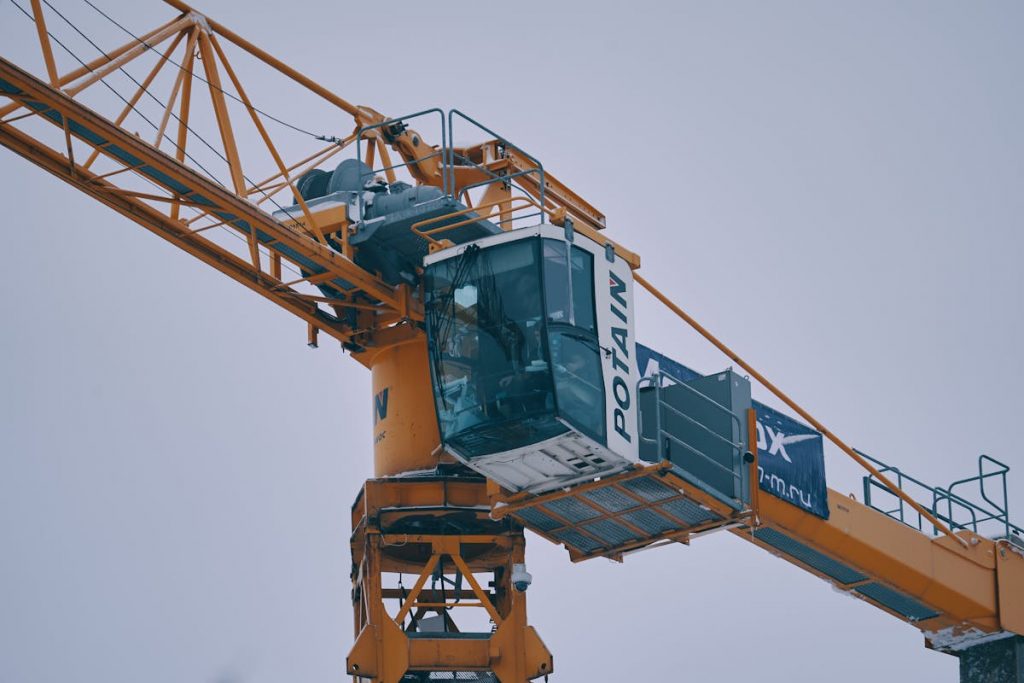
- NCCCO certification validates tower crane operators’ skills and knowledge, ensuring adherence to safety and operational standards.
- The certification process involves meeting eligibility requirements, passing written and practical exams, and submitting an application to the NCCCO.
- Benefits of NCCCO certification include nationwide employer recognition, the potential for higher wages, and a commitment to safety and efficiency.
- Continuous skill development and industry networking are key for leveraging NCCCO certification for career advancement and contributing to safer construction sites.
The construction industry’s growing demand for skilled tower crane operators highlights the importance of certification for career advancement. Certification, particularly from recognized bodies like the NCCCO, validates an operator’s skills and knowledge and significantly enhances job safety and prospects. This blog delves into the path to becoming a certified tower crane operator, underscoring how certification can elevate one’s career and contribute to safer, more efficient construction sites.
Understanding the Role of a Tower Crane Operator
The role of a tower crane operator is critical to the success of construction projects, requiring a blend of specialized skills, comprehensive safety knowledge, and precise responsibilities. Operators must expertly maneuver heavy loads at great heights, demanding keen attention to detail and exceptional coordination. Beyond the technical prowess in handling the crane’s controls, they must understand complex load charts, communicate effectively with ground crews, and anticipate potential safety hazards.
This pivotal position ensures the timely and safe execution of construction tasks, making the operator’s expertise indispensable to project outcomes. The essence of their work lies in their operational capabilities and contribution to maintaining a safe and efficient job site, marking them as central figures in the construction process.
The Importance of Certification for Crane Operators
Certification for crane operators, especially from recognized authorities like the National Commission for the Certification of Crane Operators (NCCCO), is a hallmark of professionalism and expertise. It provides a formal validation of the operator’s skills and knowledge, ensuring they meet industry standards for safety and operation.
For crane operators, obtaining certification is not just about enhancing their credentials; it’s about committing to the highest safety standards, thereby improving job prospects and ensuring the well-being of everyone on the job site.
Steps to Get an NCCCO Tower Crane Certification
- Eligibility Check: Start by ensuring you meet the NCCCO’s eligibility requirements, which include age, physical condition, and compliance with their Substance Abuse Policy.
- Written Exam Preparation: Register for and pass a comprehensive written examination that tests your knowledge of crane operations, safety practices, and theoretical principles.
- Practical Assessment: Complete a practical exam where you demonstrate your crane operating skills under observed conditions.
- Application Process: Submit your application with the required fees and documentation to the NCCCO for review.
Preparing for the NCO Certification Exams
To prepare for the NCCCO tower crane certification exams, leverage resources like study guides and training programs offered by the NCCCO and other training institutions. Practice tests can also be beneficial, providing a simulation of the exam environment and helping to identify areas needing further review. Joining study groups and engaging with a mentor who has already been through the process can offer additional insights and preparation tips.
Understanding the Benefits of NCCCO Certification
Holding an NCCCO certification comes with significant benefits, including nationwide recognition by employers, which can open the door to more job opportunities and potentially higher wages. It also signifies a commitment to safety and efficiency, which is highly valued in the construction industry. This certification can set you apart in the job market, showcasing your dedication to maintaining the highest standards of practice.
Maintaining and Renewing Your NCCCO Certification
NCCCO certification is not a one-time achievement but a professional commitment that requires ongoing education and periodic reassessment. To maintain and renew your certification, adhere to NCCCO’s requirements for continuing education, which might include training courses or seminars relevant to crane operation. Additionally, you must undergo periodic re-examination to ensure your skills and knowledge remain up-to-date with current industry standards and safety regulations, thus reinforcing the value of your certification in the long term.

Building a Career as a Certified Tower Crane Operator
Leveraging an NCCCO certification can significantly impact your career as a tower crane operator. Firstly, seek opportunities to work on specialized projects that challenge your skills and showcase your expertise. Such experiences not only enhance your resume but also broaden your skill set. Networking is crucial in career advancement; attend industry conferences, join professional groups, and connect with other professionals online.
These interactions can lead to job opportunities and valuable partnerships. Finally, commit to continuous skill development. Stay abreast of the latest technologies and methodologies in crane operation through workshops, courses, and certifications. This commitment to learning demonstrates your dedication to excellence and safety in crane operations.
The Bottom Line
Achieving NCCCO certification is pivotal for tower crane operators, marking a commitment to safety, skill mastery, and professional growth. This certification validates expertise and opens avenues for career advancement and participation in more complex projects. Emphasizing continuous learning and industry networking further enhances one’s career trajectory. Ultimately, NCCCO certification is instrumental in fostering safer, more efficient construction sites, underlining its critical role in elevating the standards of the construction industry and the careers of those within it.

